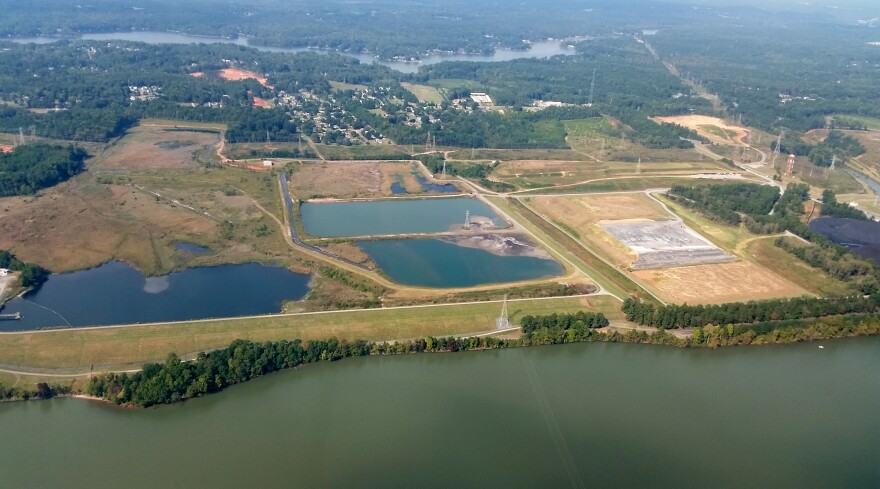The Environmental Protection Agency has finalized a new rule for how coal-fired power plants can dispose of wastewater contaminated with coal ash, which could change how a number of Duke Energy’s North Carolina plants handle the substance.
The new EPA rule is a revision of a 2015 rule from the Obama Administration EPA. Utilities would now be able to use cheaper technologies to handle their coal ash wastewater -- water used to clean smokestacks -- as well as clear out coal ash that collects in furnaces, known as bottom ash.
The EPA says utilities would save about $140 million with the rule change.
Frank Holleman of the Southern Environmental Law Center, which has sued Duke Energy multiple times over its handling of coal ash, says the utility has to decide how it will handle its coal ash wastewater.
"Are they going to protect our waterways in North Carolina, and our drinking water, by adhering to the limits and putting in place and operating the technology to comply with the limits of the 2015 rule?" Holleman asked. "Or are they going to instead seek to take advantage of this rollback?"
A spokesperson for Duke Energy said the utility likely won’t be impacted by the new rule, because it invested more than $1 billion in new technologies to filter wastewater to comply with the stricter 2015 rule.
Meanwhile, Holleman says Duke Energy’s Mayo Plant in Roxboro already uses a closed system that doesn’t create wastewater as it cleans out coal ash. Duke could install that system at its other sites, he said -- including the Marshall and Allen Steam Stations near Charlotte.
Holleman said he expects the new rule to be challenged in court, and says it may not go into effect until after the election.Want to read all of WFAE’s best news each day?Sign up for ourdaily newsletter, The Frequency,to have our top stories delivered straight to your inbox.
Copyright 2020 WFAE



